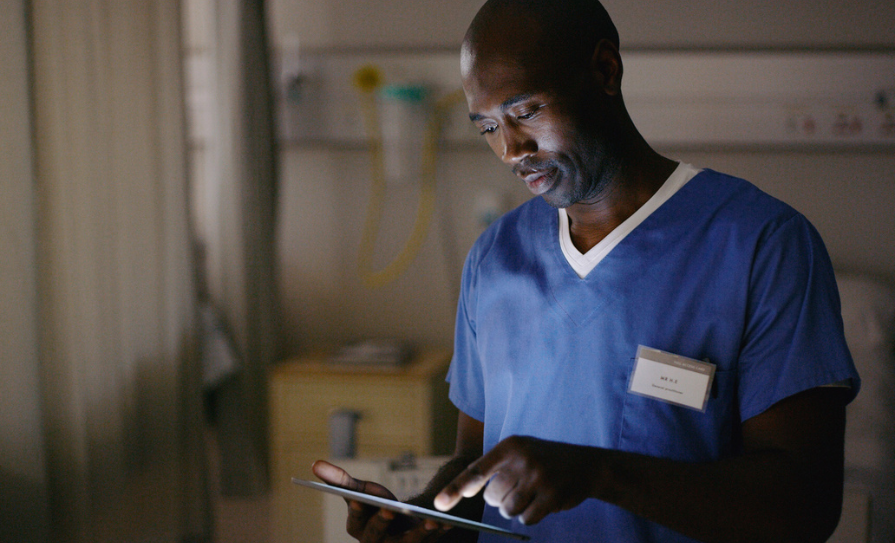Introduction
We all know that nurses and midwives play an integral and critical role across Irish healthcare, including in general practice. Healthcare services are changing and there are several key challenges that must be faced. These include staffing and the retention of workers, an ageing population with rising morbidity, the implementation of free GP care for children, evolving health policy through Sláintecare, and technological changes. General practice nurses will be at the centre of delivering Sláintecare, with a reorganisation of service delivery towards general practice and community based services, which aims to provide health services closer to people’s homes and reduce pressure on acute hospitals. It is clear that the role of nurses working in general practice is going to grow and evolve in the months and years ahead.
About NMBI
As the regulator for more than 85,000 nurses and midwives in Ireland, our role in the Nursing and Midwifery Board of Ireland (NMBI) is to protect the public and the integrity of the professions through the promotion of high standards of education, training, and professional conduct. We are focused on delivering on our statutory obligations, which are maintaining a Register of Nurses and Midwives and a Candidate Register of student nurses and midwives; setting standards for education bodies for nursing and midwifery courses; setting professional standards for nurses and midwives; and investigating and considering complaints against nurses and midwives who practise in Ireland.
Our aim is to support nurses and midwives to make the right decisions for people using services. We are also continually focusing on how we can improve the work that we do and the supports that we can offer to nurses and midwives. One way in which we are doing this is through our new strategy.
Statement of Strategy 2023-2025
In April, we launched our new Statement of Strategy 2023-2025. The strategy aims to further support our registrants by setting out an ambitious agenda to develop the nursing and midwifery professions over the next three years. The strategy outlines three key strategic priorities – protecting, promoting, and progressing the nursing and midwifery professions. These will be supported through partnership and technology.
As the regulator, we are committed to continuing our work to deliver on our statutory remit. We will also continue to act as an enabler of system-wide change. We will take key steps to achieve this and by using our data and insights to better inform the system.
It is important to emphasise that to plan for the future we need an evidence base and data, and to plan for the workforce of the future in healthcare, we must ensure nurses and midwives have the right education and training. In practice, this means we will share insights on the data we have with registrants and other key stakeholders. For example, by publishing the data we compile of who is on our register, we can help inform workforce planning and Department of Health policy. This was achieved through our first State of the Register 2022 report published last year. As part of our strategy, we will continue to publish this report, which will be supported by the development and roll-out of the next generation of our online registration system, MyNMBI. We want to build on this data to inform our fitness to practise function. By compiling and publishing information on the types of complaints we receive about nurses and midwives, we can identify trends and areas where further training may be required.
We also aim to influence the number of nurses and midwives educated and available to the Irish healthcare system. This can be achieved by reviewing entry pathways into nursing and midwifery to establish alternative routes, such as graduate-entry nursing. We know that general practices are a great place to host students as they complete their study, and offer essential learning environments. However, we also know there is a need for additional placement sites for students. We are working across both the health and education sectors to develop a plan to increase undergraduate student placement numbers. This will take into account the capacity available for clinical placements during a student’s study.
I am pleased to share that we held a clinical placement capacity workshop last month to examine the current offerings for practice placements for students at an undergraduate level and discuss opportunities to expand the number of placements available. The workshop was attended by representatives from the Department of Health, the Office of the Nursing and Midwifery Services Director (ONMSD), staff organisations, and nurses and midwives working in academic and clinical areas.
Furthermore, we are developing an online and in-person hub to support nurses and midwives from overseas to join our register and to adapt to working here. As part of our fitness to practise process, we will implement a more person-centred and compassionate approach to complaints against a nurse or midwife. We have also set out commitments to communicate with our stakeholders, including other regulators and representative bodies, to understand the emerging healthcare risks and share insights. By working together and taking a collaborative approach, we can be proactive in our work as a regulator.
The strategy also reflects the changing healthcare landscape and the need for nurses and midwives to be equipped with the knowledge, skills, and resources to provide safe, high-quality care. For example, the evolving role of general practice to achieve the objectives set out under Sláintecare Implementation Strategy and Action Plan.
Another key focus of our strategy is to implement the recommendations of the Report on the Expert Review Body on Nurses and Midwives, published last year. The report outlines key changes needed to support the professions and the wider system, such as the need for more career pathways and entry routes. We are working with other groups to help implement the recommendations arising out of that report.
To inform the development of our strategy we engaged in a wide consultation with nurses, midwives, educators, and other key stakeholders. This included holding a public consultation which received 129 responses, as well as holding 15 meetings with external stakeholders and six internal workshops. Through these engagements, we gained valuable insights, suggestions and practical steps that we can take to improve our focus, efficiency, and effectiveness. I would like to thank all the registrants, members of the public, staff organisations, employers, managers, patient advocate groups, and other key stakeholders for their input into the strategy.
Going forward
As the professional regulator for nurses and midwives in Ireland, patient safety is what drives the NMBI. To ensure we are equipped for the future, there needs to be an evidence base to what we do regarding policy, and we need to be linked and fully integrated with the rest of the healthcare system and other regulators. We need to be an agile and responsive regulator to ensure nursing and midwifery can fully develop and expand as professions.
NMBI will work alongside you, our general practice nurses, as well as other registrants, the Department of Health, the Health Service Executive, employers, education bodies, representative bodies and other key stakeholders to ensure that nurses and midwives have the resources and support they need to provide the best possible care.
The objectives outlined in our strategy set out a clear vision and roadmap for the future of these vital professions in Ireland. I believe that this strategy will not only enhance the professional development and wellbeing of nurses and midwives, but it will also improve patient outcomes and experiences. I look forward to seeing the positive impact it will have for you and the wider healthcare system.
A full copy of NMBI’s Statement of Strategy 2023-2025 is available to view on www.nmbi.ie.













Leave a Reply
You must be logged in to post a comment.